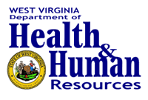Travel Update – Ebola Virus Disease (EVD)
While the information contained in this news article was current and accurate when we posted it, it may not necessarily represent current WVOEMS policy or procedure. If you have any questions, please contact our office at 304-558-3956.
Posted: Friday, June 26, 2015 10:22 AM

Health Advisory
#100
Travel Update -- Middle Eastern Respiratory Syndrome Coronavirus (MERS-CoV)
| TO: | West Virginia Healthcare Providers, Hospitals and other Healthcare Facilities |
| FROM: | Rahul Gupta, MD, MPH, FACP, Commissioner for Public Health and State Health Officer, WVDHHR, Bureau for Public Health |
| Date: | June 25, 2015 |
LOCAL HEALTH DEPARTMENTS: PLEASE DISTRIBUTE TO
COMMUNITY HEALTH PROVIDERS, HOSPITAL-BASED PHYSICIANS, INFECTION
CONTROL PREVENTIONISTS, LABORATORY DIRECTORS, AND OTHER APPLICABLE
PARTNERS
OTHER RECIPIENTS: PLEASE DISTRIBUTE TO
ASSOCIATION MEMBERS, STAFF, ETC.
According to the World Health Organization, there were 20 confirmed cases of EVD reported in the week leading up to 21 June, 2015; 12 cases from Guinea and 8 cases from Sierra Leone. In those two countries, cases continue to be identified without a known source of infection, including those identified from post-mortem testing of community deaths. The last case of EVD in Liberia was confirmed on March 20, 2015.
CDC has recently updated guidance for evaluation of West African travelers with low (but not zero) risk for Ebola: http://www.cdc.gov/vhf/ebola/healthcare-us/evaluating-patients/persons-under-investigation-low-exposure-ebola.html According to CDC: "Travelers with low (but not zero) risk of Ebola virus exposure returning to the United States from Ebola affected countries over the past year, who had symptoms suggestive of Ebola, most often had malaria or respiratory infections." Expanded guidance for considering the differential diagnosis of fever or symptoms is available at the link above.
While risk of EVD is now much lower, early implementation of appropriate infection control measures for symptomatic persons who have traveled from West Africa within 21 days remains critically important while the attending physician is working through the differential diagnosis. For symptomatic low (but not zero) risk travelers returning from Guinea or Sierra Leone, CDC recommends:
- Place the patient in a private room with a private bathroom; patient can be removed from isolation after risk assessment is conducted and Ebola is determined not to be among the differential diagnoses
- Use Ebola PPE
- Patients who have vomiting, diarrhea, or obvious bleeding includes: Single-use, impermeable gown or coverall; PAPR hood or NIOSH certified N-95 respirator; If using an N-95 respirator, a disposable surgical hood and disposable full face shield is needed; Two pairs of disposable examination gloves with extended cuffs; Disposable boot covers ; Disposable apron (optional)
- Patients who do not have vomiting, diarrhea, or obvious bleeding includes: Single-use, fluid-resistant gown, face shield, face mask, and two pairs of examination gloves where the outer gloves have extended cuffs
Symptomatic travelers recently returned from Liberia should be placed in a private room with a private bathroom until evaluation can be completed and EVD is no longer in the differential diagnosis.
Symptoms of Ebola include: fever, severe headache, muscle pain, weakness, fatigue, diarrhea, vomiting, abdominal pain and/or unexplained hemorrhage, occurring within 2 to 21 days after last exposure. Providers should notify the infection preventionist and local health department immediately if they are evaluating a returned traveler with symptoms suggestive of Ebola. Alternatively, please notify the Division of Infectious Disease Epidemiology (DIDE) at (800)-423-1271, extension 1 or (304) 925-9946. Testing for EVD is available by consultation with DIDE. See http://www.dhhr.wv.gov/oeps/disease/atoz/pages/mers.aspx for more information on EVD.
This message was directly distributed by the West Virginia Bureau for Public Health to local health departments and professional associations. Receiving entities are responsible for further disseminating the information as appropriate to the target audience.
Categories of Health Alert
messages:
Health Alert: Conveys the highest level of
importance. Warrants immediate action or attention.
Health Advisory: Provides important information
for a specific incident or situation. May not require immediate
action.
Health Update: Provides updated information
regarding an incident or situation. Unlikely to require immediate
action.
West Virginia Health Advisory Number WV0099-06-25-2015
File attachment
wv han advisiory 0099 travel update -- ebola virus disease (evd) (2).pdf
